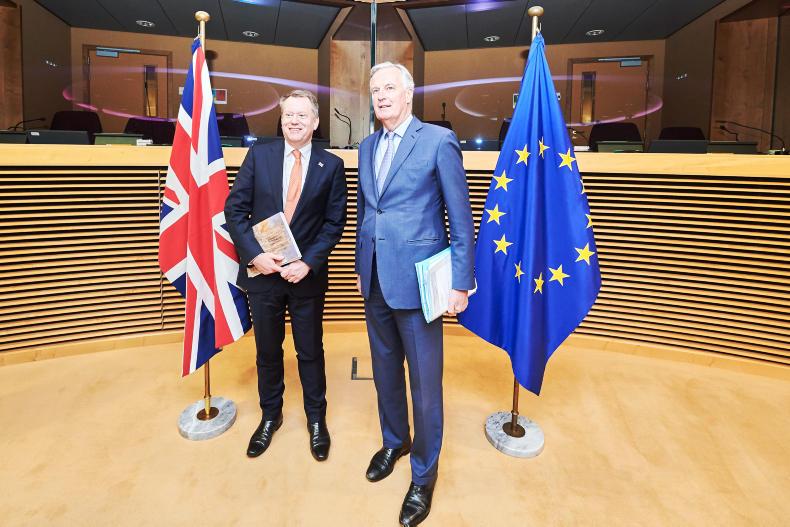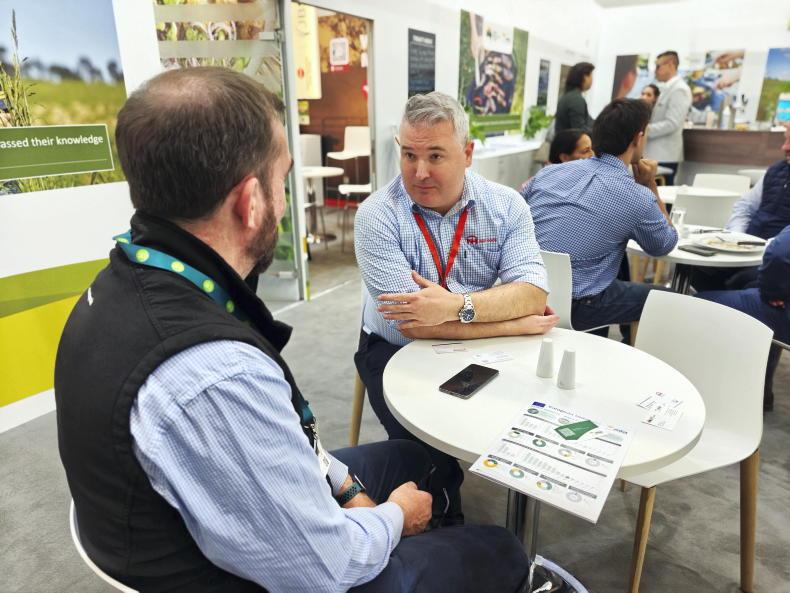The first of five weeks scheduled for intensive EU-UK talks on a future trade deal ended a day early in Brussels, with no sign of a breakthrough. The talks move to London next week for the second session.
The problem is that the EU are unwilling to grant the UK similar terms of trade they enjoyed as an EU member while the UK are making their own trade agreements with other countries, having already opened negotiations with the US, Australia and New Zealand.
These five week talks during July, with a sixth week scheduled for the middle of August, will determine if a deal between the UK and EU is possible, or if trade will revert to World Trade Organisation (WTO) terms. If this is the case, it will mean a higher level of bureaucracy and tariffs, which are particularly high on agri food products.
Landbridge
Meanwhile, RTÉ report that the EU and Ireland have agreed (subject to approval) to a green lane or fast track for Irish exports to other EU member states via the UK land bridge. This is a welcome development. Irish goods entering the UK will be subject to border controls, but if they can be avoided for goods in transit to the rest of the EU, it will streamline the export process.
It is also emerging that Larne port in Northern Ireland is preparing to extend its facilities to accommodate the new procedures that will be implemented as agreed in the Irish protocol of the UK withdrawal agreement. The Guardian has also viewed the documentation that will be required for goods entering and leaving Northern Ireland for the rest of the UK.
The fact that negotiations are dragging means a no deal Brexit is becoming increasingly likely. This isn't just a question of impact on Irish trade with Britain -which, in itself, would be severe - but also the collateral damage caused by future UK trade deals with other third countries. Many of these, including New Zealand, Australia and the US, have a high priority on securing access for agricultural produce to the UK market. When they do, it will lower the value of that market for Irish exporters, irrespective of what the direct trade terms are for UK-EU trade.
Read more
Brexit: Change in IT system for food and live exports
Beef labelling blocking trade
The first of five weeks scheduled for intensive EU-UK talks on a future trade deal ended a day early in Brussels, with no sign of a breakthrough. The talks move to London next week for the second session.
The problem is that the EU are unwilling to grant the UK similar terms of trade they enjoyed as an EU member while the UK are making their own trade agreements with other countries, having already opened negotiations with the US, Australia and New Zealand.
These five week talks during July, with a sixth week scheduled for the middle of August, will determine if a deal between the UK and EU is possible, or if trade will revert to World Trade Organisation (WTO) terms. If this is the case, it will mean a higher level of bureaucracy and tariffs, which are particularly high on agri food products.
Landbridge
Meanwhile, RTÉ report that the EU and Ireland have agreed (subject to approval) to a green lane or fast track for Irish exports to other EU member states via the UK land bridge. This is a welcome development. Irish goods entering the UK will be subject to border controls, but if they can be avoided for goods in transit to the rest of the EU, it will streamline the export process.
It is also emerging that Larne port in Northern Ireland is preparing to extend its facilities to accommodate the new procedures that will be implemented as agreed in the Irish protocol of the UK withdrawal agreement. The Guardian has also viewed the documentation that will be required for goods entering and leaving Northern Ireland for the rest of the UK.
The fact that negotiations are dragging means a no deal Brexit is becoming increasingly likely. This isn't just a question of impact on Irish trade with Britain -which, in itself, would be severe - but also the collateral damage caused by future UK trade deals with other third countries. Many of these, including New Zealand, Australia and the US, have a high priority on securing access for agricultural produce to the UK market. When they do, it will lower the value of that market for Irish exporters, irrespective of what the direct trade terms are for UK-EU trade.
Read more
Brexit: Change in IT system for food and live exports
Beef labelling blocking trade










SHARING OPTIONS